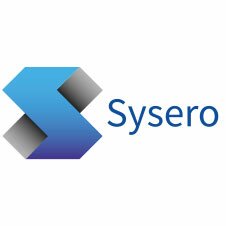Sysero: What’s next for legal transformation?
While law firms have been on the path towards a more digital-driven approach for several years, the arrival of the pandemic has accelerated digital transformation across the legal sector. In some markets, like the Nordics, law firms have been working with technology to transform the service delivery process and enhance collaboration with clients. In others, law firms have been exploring how workflow automation can be used to speed up and simplify traditionally laborious processes.
As we embark on a new year – and new challenges ahead – law firms, corporate legal departments and legal professionals are looking forward to what comes next. While 2020 paved the way for a more flexible and technology-driven way of working, the year ahead has the potential to finally transform the way law firms and legal teams operate.
Moving into the new year, the legal sector will need to tackle a range of challenges, from adapting to tougher competition and tighter budgets to fostering stronger collaboration amongst lawyers, staff and clients, irrespective of location. To stay competitive, legal providers will need to quicken the pace of technology adoption and quickly move to execute digital transformation strategies to reinvent how work gets done.
While no one can say for certain what the year ahead will hold, the need for change is inevitable. As firms continue to navigate the evolving world of remote work, looming cybersecurity threats, and shifting client demands, those that have the right technology tools and processes in place will emerge with a distinct competitive advantage. So, as we embark on the new year, legal providers should be focused on three key areas for legal transformation: resiliency, efficiency and security.
Resiliency
In the wake of the first lockdown, many firms faced a very real scenario where the ability to quickly scale up at a moment’s notice had significant advantages. While some firms struggled to cope with the rapid transition to remote working, others relied on existing cloud infrastructures to quickly enable flexibility and mobility to traditionally office-based professionals.
In this new era of agile working, resilience takes on ever greater importance for the modern firm. Law firms and other legal providers must be able to quickly adapt to any disruptions, while ensuring quality and uninterrupted service delivery. Law firms and legal teams will need to re-evaluate traditional ways of working, embrace digital workflows and consider technologies that facilitate greater flexibility and accessibility in sharing know-how across the firm.
As part of this, the ability to obtain digital signatures and deliver seamless service to clients online will be crucial heading into 2021. While e-signing isn’t a new concept, the past year has seen an accelerated need for e-signing capabilities to keep business moving forward. Fortunately, tools like Sysero E-Sign make it easy to obtain digital signatures and deliver streamlined, end-to-end digital signature and contract management – all from within Microsoft Word.
With a remote workforce in place for the foreseeable future, law firms will also need to find ways to enable legal service delivery online. One way that firms are solving this challenge is by empowering clients to create on-demand legal documents through self-service client portals. By making frequently-used templates readily available for clients via the cloud, your firm can continue to provide uninterrupted service and maintain business continuity.
Efficiency
Moving into a year of uncertainty, firms and legal providers will need to solidify and scale their ability to work quickly and cost-effectively. Faced with shrinking budgets, tougher competition and increasing client demands, firms must rely on workflow automation tools to drive more productive, profitable and scalable work, without compromising quality.
Fortunately, today’s legal workflow automation tools can be used in a number of ways to streamline key processes – from client onboarding and contract management to document generation and service delivery. Heading into a year where everyone will be looking to do more with less, legal leaders will need to adopt workflow automation technologies to improve processes, streamline services and deliver quality work to clients.
Security & Compliance
Some serious cybersecurity and compliance concerns have surfaced for today’s law firms and legal providers. Cybercrime is steadily rising and cybercriminals continue to target law firms with new cyberattacks aimed at spreading malware and stealing sensitive information. As a result, many firms find themselves struggling to keep pace with the data security and compliance challenges of remote working.
Fortunately, there are a number of ways to use legal workflow automation to effectively enforce data protection policies and ensure compliance with key industry regulations, such as GDPR, Know-Your-Client and EU Money Laundering directives. Tools like Sysero allow for pseudonymisation of personal data, risk-based business acceptance and embedded compliance expertise to help safeguard data and mitigate risk if there’s a data breach.
As we head into the new year, firms will need to lean on the lessons learned in 2020 to pave a path to success in the next 12 months and beyond. Innovative technologies that foster flexible ways of working, streamline processes and enhance security will be invaluable. With the right tools, technologies and processes in place, law firms and legal providers have the chance to become more resilient, agile and focussed in the year ahead.
To learn more about Sysero can help your firm tackle the challenges ahead, get in touch with us.



